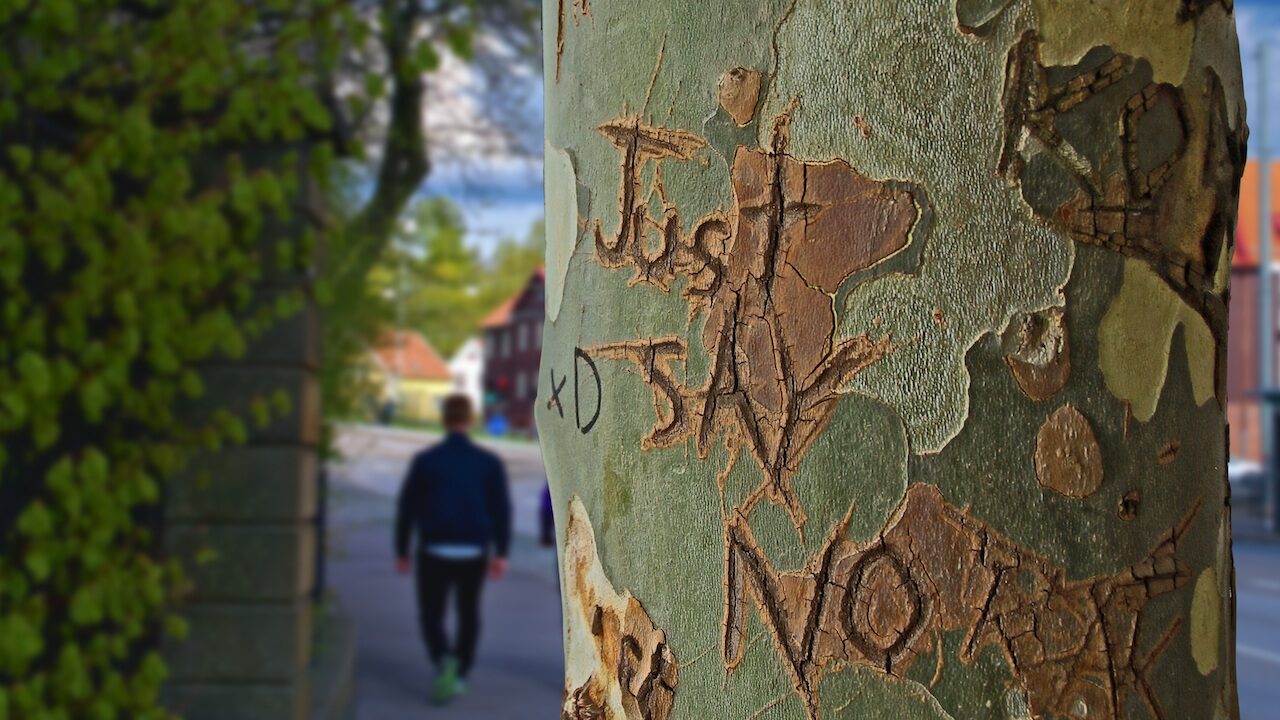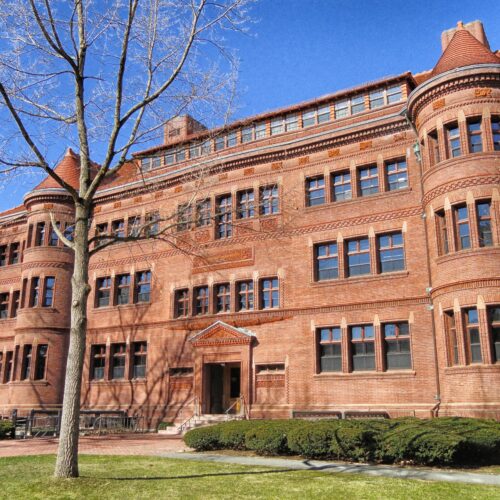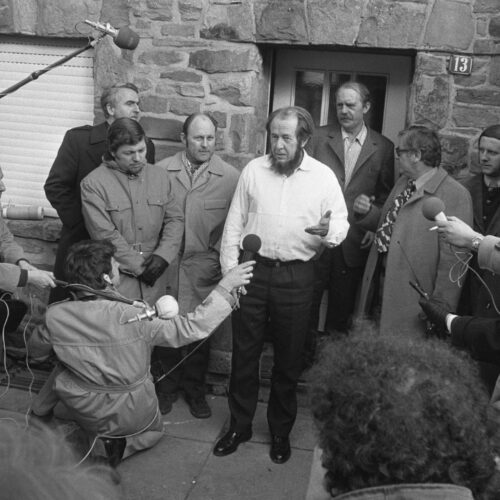No To Conservative Accommodationism

The Right concedes ground to the woke revolution and gives bipartisan legitimacy to a progressive project that aims to diminish the moral capital of historic America.
Editor’s Note – This essay was originally published at American Greatness on April 22, 2023.
Rick Hess of the American Enterprise Institute (AEI), a leading figure of the establishment Right in education, asks if Americans can find “common ground in our history wars.” He answers in the affirmative. “Happily,” Hess tells us, “there is copious common ground to be found.”
Unfortunately, he is wrong.
Hess points to polling data that suggests that “Americans, left and right, want schools to teach a robust, inclusive, and honest history that explores the good and the bad of our national story and explains why it matters today.”
No doubt this is true, but what most Americans want is not what determines the content of history and civics in our schools. A progressive education establishment entrenched in state departments of education, university schools of education, and educational bureaucrats at the federal and state level determines what American students are taught about our country and its past.
For decades (and increasingly since the George Floyd incident) this education establishment has embraced a vision of America as a nation built on slavery and the exploitation of marginalized groups, more a land of “oppression,” than of opportunity. As the Marxists would say the “correlation of forces” has shifted dramatically in favor of those who repudiate the traditional American way of life and seek revolutionary change. It is not the 1980s and “morning in America” anymore.
Analyzing the Common Ground
Under current circumstances, what type of “common ground” and “national consensus” is possible? Let us examine the results of an ongoing “common ground-national consensus” project that AEI’s Hess has advocated, Educating for American Democracy (EAD). This initiative represents a coalition of educators from Harvard, Tufts, Arizona State, local and state government education officials, and a major civic education organization, iCivics, which promotes “action civics” or training K-12 students in how to become leftist protestors.
EAD receives ample funding from the federal government and major foundations such as the Rockefeller Brothers Fund. The executive committee of 10 consists of seven progressives and three conservatives (most prominently, professors Paul Carrese of Arizona State University and James Stoner of Louisiana State University). EAD has established a “large network of participants [300 people]—including teachers, scholars, students, and leaders from private and public sectors . . . [that are] professionally, demographically, and ideologically diverse.” The latter claim is false—of the 300 participants perhaps 10 were non-progressives. EAD purports to be “bi-partisan” and “trans-partisan,” however, an examination of the content reveals the project to be decidedly Left.
To begin with, Educating for American Democracy claims to be a major “national consensus” civic education project, yet it degrades the very meaning of American citizenship. Students are first asked to examine the “definitions of citizenship.” The EAD report then proceeds to redefine (and in the process) downgrade citizenship’s historical and contemporary significance. In EAD’s view, along with legal citizens there are “civic participants” which are defined as any resident, citizen or non-citizen, legal or illegal inhabitant living within the United States.
All of these “residents,” American citizens, and those who are in the country illegally are “civic participants,” who, therefore, should be involved in decision making in our constitutional republic. Indeed, EAD emphasizes that an illegal alien “may yet serve as a paragon of citizenship,” while native born and naturalized Americans “may hold legal citizenship without exercising any civic responsibility or while actually undermining the community.” In a few cases this might be true, but EAD’s convoluted rhetoric is an unbalanced and jaundiced way of teaching American citizenship to K-12 students. Certainly, it does not represent a “national consensus” on the meaning of either American citizenship or illegal immigration. It is instead an attempt to manufacture a false consensus by misrepresentation.
But Also Enslaved People
In addition, EAD tells us that “students can make it into their teens without knowing, for instance, that George Washington was not only a foundational leader but also enslaved people.” This is a blatant lie. Washington did not seize individuals who were free and put them in chains. I have discussed this malicious falsehood in several essays, but there has been, as yet, no response.
To falsely label Washington and other founders as “enslavers” (instead of, more accurately, as “slave owners” who sought, as Lincoln notes, slavery’s “ultimate extinction”) is a deliberate tactic employed as a rhetorical weapon. It is a calculated strategy designed to delegitimize Washington, Thomas Jefferson, and James Madison and, thus, the American founding in toto. Why did conservative members on the EAD executive committee, professors Paul Carrese and James Stoner, approve this weaponized language? Why did Rick Hess declare that EAD “gets the big values things right?
The Educating for American Democracy roadmap is presented as a series of questions. For the most part, EAD poses questions leading to woke progressive answers.
For example, “What role has mass incarceration played in shaping American life?” (The answer is actually no role. Out of 100,000 Americans approximately 540 are incarcerated, hardly “mass incarceration.” But that’s not where the EAD is going with this.)
“What obligations does the term ‘indigenous’ carry, both to and from America’s native population?” (Pace EAD, the only “obligation” is to treat them equally, the same as any other Americans.)
“How can American constitutional democracy benefit from the many dimensions of diversity?” (Why not ask, how does the contemporary cult of “diversity” weaken American constitutional democracy?)
Reminiscent of an Obama campaign document, EAD asks “How can groups and individuals transform the United States? What are the various strategies and processes (e.g., elections, protests, social movements, litigation, etc.) that people can use to bring about social change? What are [sic] the role of protests and social movements in bringing change? How is power analysis relevant to the project of bringing change?” (“Power analysis,” of course, is a core feature of Saul Alinsky’s Rules for Radicals.)
A Model of Civic Education
Rick Hess sees “no evidence that the document promotes woke ideology.” Yet, EAD emphatically states that “EAD teachers focus on inclusion and equity in both content and approaches.” DEI (diversity, equity, and inclusion), of course, is the quintessence of wokeism.
Significantly, EAD cites Illinois as a model of civic education. Teachers in Illinois are called upon to “mitigate their own behavior (racism, sexism, homophobia, unearned privilege, Eurocentrism.”) They must incorporate the concept of “systems of oppression” by “understand[ing] that there are systems in our society that create and reinforce inequities, thereby creating oppressive conditions.” That sounds rather like woke ideology.
Perhaps worst of all, EAD promotes “action civics” which enlists students in left-wing protests for school credit. Stanley Kurtz has declared, “action civics is the application of Alinsky-style political organizing tactics to school children. So-called action civics is more like anti-civics.” The Texas Public Policy Foundation examined 27 action civics programs at the college level and found them all to promote leftist causes (Green New Deal, gun control, drivers licenses for illegal immigrants, and LGBTQ+ homelessness in Berkeley, etc.)
Proposed congressional legislation, the Civics Secures Democracy Act (CSDA) is enthusiastically backed by EAD leaders, who also happen to be the chief supporters of action civics. At first CSDA openly funneled billions of dollars toward action civics projects. Although the language has been tweaked, under political pressure, to drive the connection to action civics underground, Biden Administration bureaucrats will still be able to use CSDA to tie billions in federal aid in education to the implementation of action civics throughout the nation in red as well as blue states. Professor Stoner co-authored an op-ed supporting CSDA, legislation that has been denounced by Ron DeSantis, Mike Pompeo, Donald Trump, and Newt Gingrich.
Conservative Supporters of Educating for American Democracy
Nevertheless, conservative professors Paul Carrese and James Stoner defend both the general strategy of collaboration in national consensus civic education initiatives and the substance of the EAD project that they participated in writing. They reject what they characterize as an “obstruction strategy” that positions conservatives in an “endless combat mode.” Instead, they argue, “we should get conservatives at the table to ensure that a national reform effort on civics pulls the national debate, and subsequent state and local efforts, towards the reasonable center.”
Carrese and Stoner further declare: “We need to be citizens as well as partisans, recognizing we all profit when we work together on matters where, if we listen to one another—and yes, compromise—we can, in fact, find constructive agreement.”
This assumes, naïvely, that progressive educators are operating in good faith, motivated more by principles than power. Carrese and Stoner should listen to their fellow EAD executive board member Louise Dube, head of the major protest civics group iCivics. Dube complained that “we have been teaching civics” from the “perspective” of the “white male.” She declared that at iCivics (a major organizer, convenor, and implementer of the EAD project), “we no longer gloss over systemic racism, but give students the tools to address it.” iCivics, she stated, “made a commitment to pointing out institutional systemic racism in teaching about our institutions. This will alienate some, but it is the moral imperative of today.” In other words, conservatives seeking compromise on civics can go pound sand.
Carrese and Stoner claim EAD reflects conservative victories with language promoting “reflective patriotism,” “constitutional democracy,” “civic virtue,” “civic friendship” and the study of our founding documents. Yes, they did score some rhetorical points, but the overarching narrative advances the progressive agenda. As noted earlier, EAD’s concept of “civic participant” debases the very concept of American citizenship and the big lie that trashes our founders as “enslavers” is boldly promoted by Educating for American Democracy.
Carrese and Stoner endorse EAD’s morally equivalent balance between the positive and negative in America’s story (we need an “appreciation of the ideals of our political order” along with a “candid reckoning with the country’s failure to live up to those ideals.”) However, a critic of EAD, Professor Mark Bauerlein asks: “Why this insistence on a candid reckoning with the country’s failures . . . . The syntax balances successes and failures as if each were equality worthy of attention.” Rejecting this moral equivalence, Bauerlein responds that “to be so scrupulously even-handed goes too far. Patriotism requires that the pluses get a lot more attention than the minuses—and I believe the American record fully warrants that assertion.”
There is no doubt that in the final analysis, EAD comes down on the side of emphasizing the “failures” in America’s past. The document clearly states,“To those who believe in America’s principles and promise, what we have inherited is painfully imperfect.” Is this the message that conservatives want to pass on to future generations of Americans: “what we have inherited is painfully imperfect?” Instead of, for example, rejecting radical utopianism, and more accurately describing “what we have inherited”—American civilization (the American way of life)—as having provided arguably the greatest liberty and greatest opportunity for the greatest number of people of any society in the history of the world.
Simply Saying No
But, what about persuading professional civic educators? Carrese and Stoner maintain that they are involved in the art of persuasion, which they argue is more effective than simply attacking the other side. Persuasion, of course, is crucial. This is a truism. But the key question is who should be (and could be) persuaded? Louise Dube of iCivics (“systemic racism” is “the moral issue of our time”) and the six other progressive educators on the EAD executive committee are not open to persuasion by altering their core leftist ideology that America (past and present) is characterized more by failures than by successes—more as a problematic society to be “interrogated” than affirmed.
Instead of attempting to persuade committed leftists, conservative educators should aim our arguments directly to the general public, and, most importantly, to elected officials in the states (governors and legislators) and to members of Congress and hopefully someday to the federal executive branch. In other words, we should attempt to influence those who have the power to defeat the woke education establishment. That is our audience; it is a large one; and it can be persuaded.
Carrese and Stoner repeatedly declare that: “The time has passed for simply saying no,” contending that opponents of EAD are intransigent nay-sayers who have nothing positive to offer. This is a gross mischaracterization. Opponents are offering a clear and accurate alternative vision of history-civic education with an emphasis on state and local policy instead of a manipulated “national consensus.”
For example, Hillsdale College professors created a 1776 Curriculum to use in 80 Hillsdale affiliated charter K-12 schools and available to any other state and local jurisdiction. The National Association of Scholars’ (NAS) Civics Alliance has developed a Civics Curriculum Statement and American Birthright social studies standards for use in the states. There is the report of the Presidential 1776 Commission and the mostly African-American 1776 Unites project headed by Robert Woodson. Governors such as Ron DeSantis in Florida, Bill Lee in Tennessee, and others have promoted accurate history and civic education reform. All of these initiatives reject the EAD mindset and what Stanley Kurtz calls the “consensus by surrender” model advanced by Carrese, Stoner, and Rick Hess.
Accommodation, or American?
How do we make sense of the controversies over American history and civics? Simply describing the conflict as a culture war is inadequate because it is much more than that. We should realize that we are in the middle of what Angelo Codevilla called a “cold civil war.” This conflict is more than a culture war because it is a conflict over the entire American way of life writ large: the politics, culture, habits, sentiments, manners and mores of our nation and people.
The aggressor in the conflict is a progressive Left that repudiates historic America and seeks its “fundamental transformation” into a new type of regime based on different and novel concepts of the good and of justice. It is an adversarial framework that is antithetical to American principles because it divides Americans into “oppressor” and “oppressed” groups, and places race, ethnicity, and gender (rather than citizenship, freedom, and equality) at the center of all institutions and aspects of civic life.
We are in the middle of a thorough-going cultural and political revolution. Education is a major front, in many ways the major front in this conflict. In the long run, it is what Clausewitz characterized in every war as the “center of gravity.”
The choice facing the American Right is either to resist or accommodate this revolutionary aggression. Resistance means rejecting the Left’s educational agenda root and branch, and offering a clear, accurate, and patriotic alternative to the American people and their elected representatives. Accommodation seeks consensus and compromise with the progressive juggernaut with the hope of moderating the beast and containing its most radical and revolutionary advances.
In a recent essay Tom Klingenstein and I described two contending forces in American conservatism today: Those who seek accommodation with the woke revolution and whether wittingly, or unwittingly, assume a subordinate role in the education hierarchy are “accommodationists.” Those who refuse to accommodate to wokeism and unapologetically affirm historic America should be called “Americanists.”
The role of some conservatives in supporting Educating for American Democracy provides a textbook case of accommodationism. In this vein, conservatives concede ground to the woke revolution and by their participation give bi-partisan legitimacy to a progressive project that aims to diminish the moral capital of historic America. With EAD the needle has moved not to the “reasonable center” (as envisioned by the accommodationists) but to the left.
In the coming months, as the political season intensifies, we will witness a jockeying for position between Americanists and accommodationists. The key questions are: Who will determine the education policy of the American Right in forthcoming state legislative sessions? Who will determine—and since personnel is policy—who will staff a potential new conservative administration in January 2025: Americanists or accommodationists?



